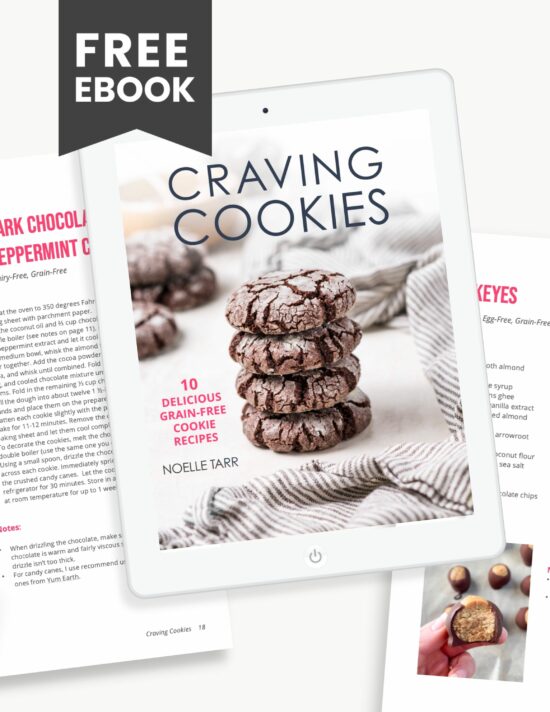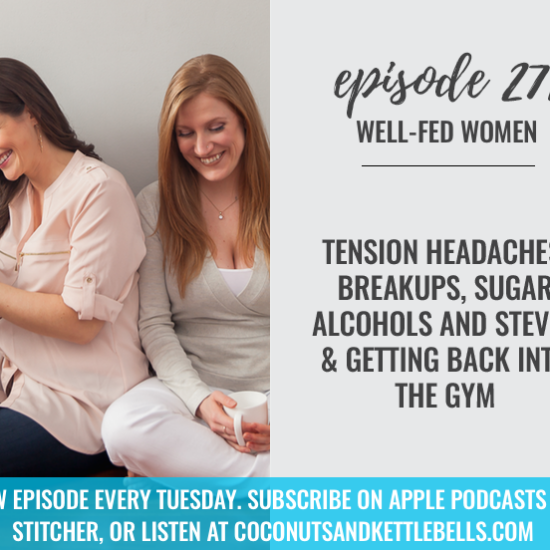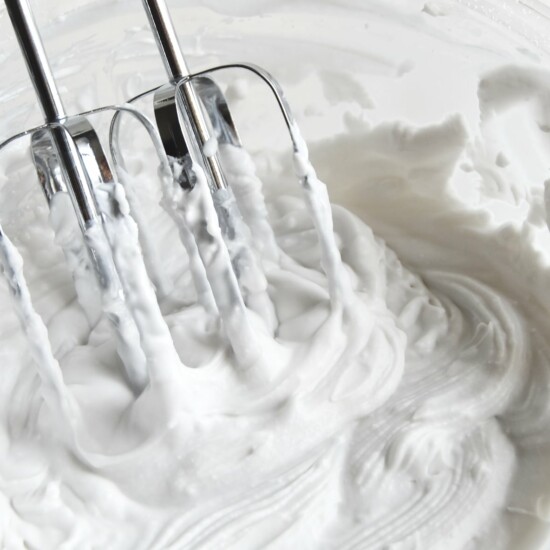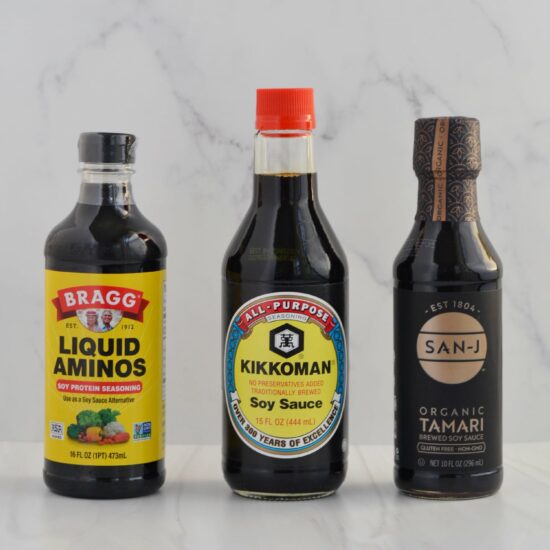This post may contain affiliate links. Please read our disclosure policy.
Looking for an easy coconut sugar substitute? Here are the 9 best substitutes for coconut sugar, including how to use each one in recipes. I’ve got you covered with all the tips!
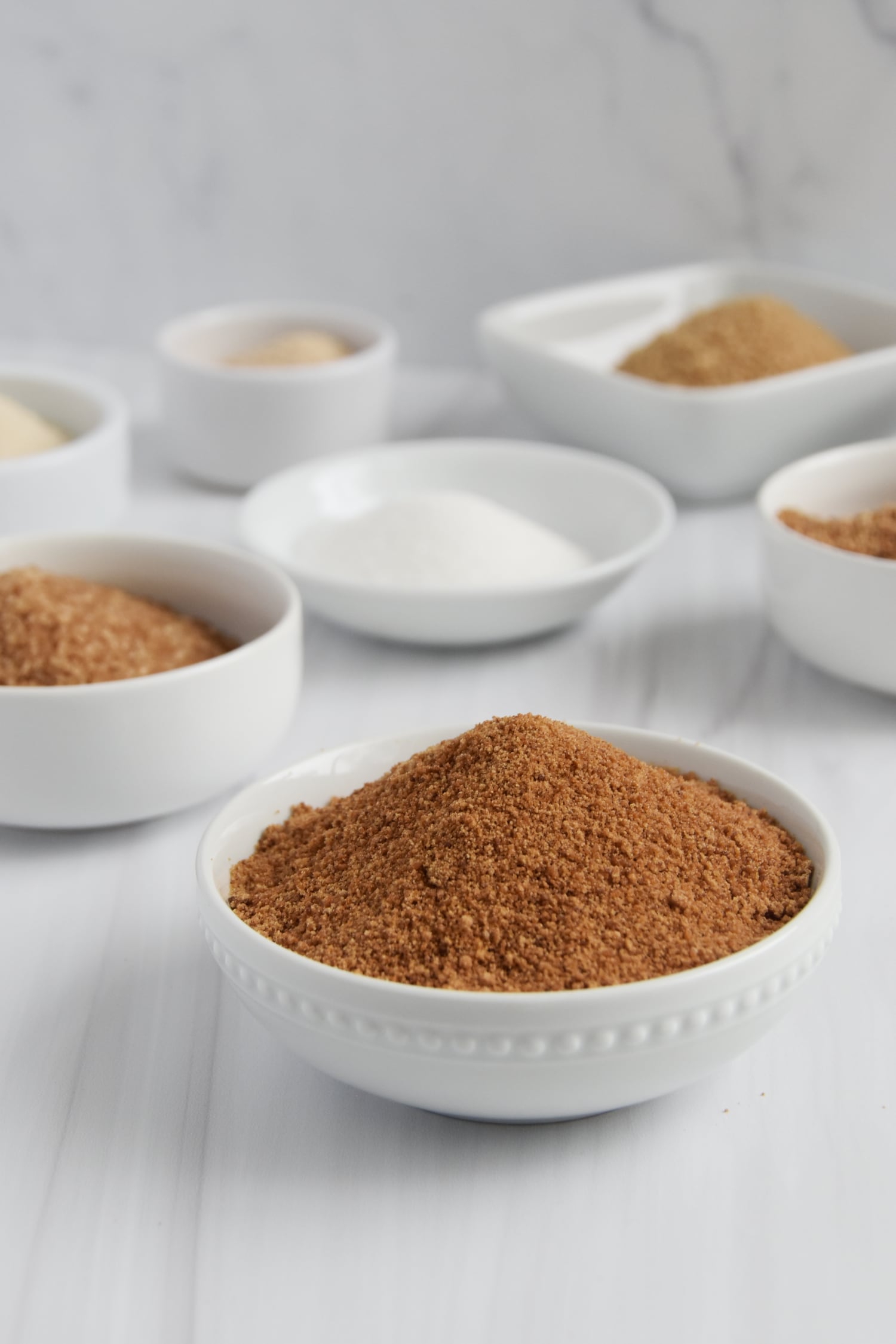
If you’re a fan of baking or cooking, you’ve likely seen coconut sugar as an ingredient in recipes, including many of mine! It’s grown in popularity in recent years as a healthier alternative to regular sugar. It’s wonderfully sweet with hints of caramel, and works well in everything from cakes to sauces!
New to coconut sugar? Or, can’t find it at your local grocery store? Don’t sweat it! It’s incredibly easy to use a replacement for coconut sugar in most recipes. Below, I’ve included the best coconut sugar substitutes, as well as how to swap each depending on how you’re using it.
Jump to:
What is Coconut Sugar?
Coconut sugar is made from the sap of flowers on the coconut palm tree. Despite the name, it doesn’t come from coconut, rather it comes from flower bud stems on coconut palms.
Coconut sugar is made by cutting the flower of the coconut palm and collecting the liquid sap. Then, the sap is placed under heat to evaporate the water. Afterwards, the dried sap is broken apart, which results in a granulated caramel-colored sweetener. When it comes to look, taste, and texture, coconut sugar is very similar to brown sugar.
Is coconut sugar healthier than other sugars?
Coconut sugar is perceived as a healthier alternative to other sugars because it’s minimally processed and contains additional nutrients. Specifically, coconut sugar contains iron, zinc, calcium, and potassium, as well as polyphenols and antioxidants. It also contains inulin, a prebiotic fiber that may slow glucose absorption. Despite this, coconut sugar is still sugar, and is almost identical to regular sugar in terms of calories and carbohydrate content.
What can be used instead of coconut sugar?
The best coconut sugar substitute is brown sugar. It’s almost identical in terms of texture and taste, and can be used as a 1:1 swap for coconut sugar in all types of recipes. You can also use natural cane sugar instead of coconut sugar as it’s similar in flavor and appearance.
Need a few other options? I got you! Let’s look at the other replacements for coconut sugar and how they work in specific recipes.
9 Coconut Sugar Substitutes
It’s incredibly easy to use a replacement for coconut sugar in recipes. In most cases, you’ll be able to use other sugars in a 1:1 ratio. If not, I’ve noted below!
1. Brown sugar – best option!
Brown sugar is a granulated cane sugar that has been mixed with molasses. It’s the most similar in color, texture, and flavor to coconut sugar. It also melts just like coconut sugar, which makes it great for cooking as well as baking. Best of all, brown sugar is an easy swap that’s readily available at most stores. In fact, you might have some on hand right now!
When using brown sugar as a replacement for coconut sugar, use light brown sugar, which has less molasses and less moisture in comparison to dark brown sugar.
2. Natural Cane Sugar
Cane sugar is sugar that has been made exclusively from sugar cane. In comparison, white granulated sugar may be made from either cane or sugar beets. Because it’s less processed, cane sugar has slightly larger crystals and it’s typically a light golden color. You can use it as an easy swap for coconut sugar in all types of recipes, including baking and cooking recipes.
3. Turbinado Sugar
Turbinado sugar (also known as raw sugar) is a type of cane sugar. It’s golden brown in color and has slightly larger crystals, similar to coconut sugar. Because of how it’s processed, it retains some of the natural molasses. This gives it a subtle caramel flavor.
Turbinado sugar is a great alternative to coconut sugar, and can be used in the same amount as coconut sugar in recipes.
4. Maple sugar
Not to be confused with maple syrup, maple sugar is granulated sugar made from the sap of maple trees. It’s essentially what you get when you boil maple syrup until the liquid evaporates. Because of this, it retains some nutrients and antioxidants.
While coconut sugar can turn baked goods a caramel color, maple sugar doesn’t add any sort of caramel coloring. This is great when you’re baking something that is light in color like vanilla pound cake. The big downside? It’s hard to find and significantly more expensive. Still, it’s a perfect coconut sugar substitute that can easily be swapped 1:1 in all recipes.
5. Date sugar
Date sugar is a granulated sugar made from finely ground dehydrated dates. In recent years, it’s grown in popularity as a more natural sweetener. Because it’s minimally processed, it retains a number of vitamin and minerals, including potassium, iron, B vitamins, and fiber.
While date sugar is similar in texture and flavor to coconut sugar, it won’t dissolve in hot liquids or baking. It’s best used as a substitute in breads, muffins, or oatmeal, but can run a little sweet. You’ll likely need to run it through a food processor before using it since it tends to clump easily. For best results, use about 3/4 cup date sugar for every 1 cup of coconut sugar in recipes.
6. Sucanat
Ready for this? Sucanat is a trademarked abbreviation for sugar-cane-natural. It’s a type of unrefined, natural cane sugar made from minimally processed sugar cane juice. Because it’s a natural source of sugar, it contains vitamin and minerals, and has larger crystals. It also has a slightly golden brown color because it contains some molasses. For the best texture, run sucanat through a food processor to breakdown some of the larger granules. While relatively new, sucanat is a good replacement and can be used as an equal swap in all recipes.
7. Raw Honey
Raw honey is one of the most beloved types of natural sugar. The product of honeybees, honey is packed with vitamins and minerals, and has antioxidant and anti-inflammatory properties. It’s typically thick and extra sweet, making it great for sauces, teas, and smoothies, and even baking!
Because raw honey is a liquid sugar substance and much sweeter, it cannot be used as an equal swap in baked goods. Coconut sugar is a dry ingredient, and using a wet ingredient in its place will change the composition in baking. As a general rule, use about 2/3 cup honey for every 1 cup coconut sugar, and reduce the liquid ingredients (ideally milk) in baked goods by 1 tablespoon per every 1/4 cup honey used.
8. Maple Syrup
Pure maple syrup is a syrup made from the sap of sugar maple trees. It has a long history in North America and has been used for centuries as a natural sweetener. Pure maple syrup contains minerals and phenolic compounds with anti-inflammatory properties. It’s slightly thick and sticky, and has a wonderful sweet flavor with notes of caramel and vanilla.
Maple syrup adds more moisture and is a little sweeter, so you need to make a few adjustments to a recipe that calls for coconut sugar. As a general rule, you want to use 3/4 cup maple syrup for every 1 cup coconut sugar. Then, reduce the liquid in the recipe by about 1 tablespoon per every 1/3 cup maple syrup in baked goods.
9. Date Syrup
As you might expect, date syrup is a thick, caramel-colored liquid sweetener made from dates. Because it’s just dates and water, it still has vitamins, minerals, antioxidants, and amino acids! It’s a natural sugar that is deliciously sweet.
Like other liquid sugars, you’ll need to use less date syrup when using it as a replacement for coconut sugar. Use 2/3 cup date syrup for every 1 cup of sugar, and reduce the overall liquid in the recipe by about 1 tablespoon per every 1/3 cup date syrup in baked goods.
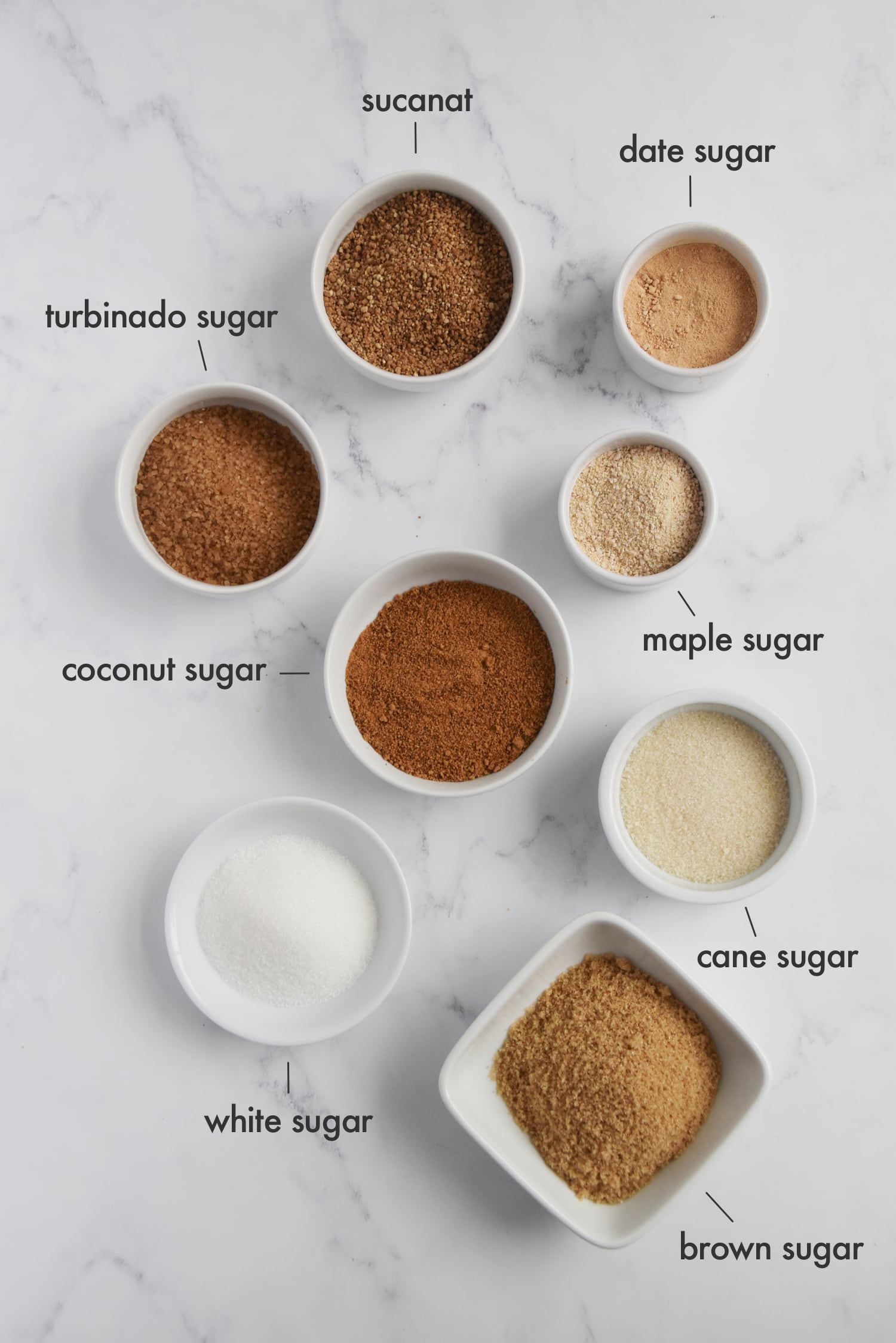
Can you use regular sugar instead of coconut sugar?
Yes! If you only have regular sugar on hand, you can use it as a replacement for coconut sugar in most recipes. Just use 1 cup regular sugar in place of 1 cup coconut sugar. It’s an easy swap that will provide similar results. Because granulated sugar tends to be sweeter than coconut sugar, you may notice a slightly different flavor.
Coconut Sugar Recipes
Now that you know all about coconut sugar and easy swaps, here are some incredible recipes you can start experimenting with! While coconut sugar is my preferred natural sugar in baking, substitutes are always easy to make:
- Healthy Apple Pie Bars
- Paleo Pumpkin Bread
- Paleo Chocolate Donuts
- Dairy Free Chocolate Pudding
- Healthy Pumpkin Bars with Cream Cheese Frosting
The Bottom Line
Coconut sugar is an amazingly versatile ingredient that works well in so many different recipes. But, you may not always have it on hand. If you need to use a substitute—you should have a problem in any of your recipes using what I’ve listed above!
What is your favorite coconut sugar substitute? Let me know in the comments! I’d love to hear what works best for you.
